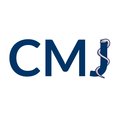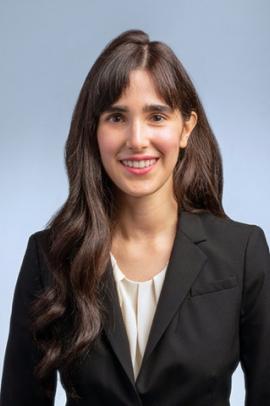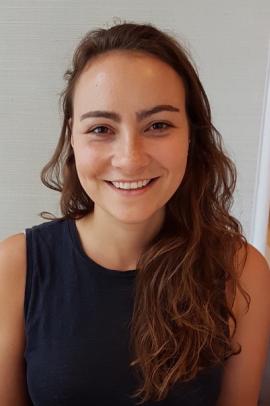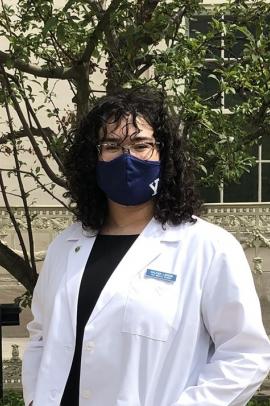Group consultations - the future of General Practice?

Abstract
Group consultations have been a feature of both primary and secondary care in the USA and Australia for a number of years, with pilot schemes now being run across the UK. They aim to provide efficient care that promotes self-support, which were both areas of impact discussed in the 2016 GP Forward View[1]. A recent training day about the concept was held in Cambridgeshire, with the first consultations to be introduced later this year. This article will outline exactly what they are and the evidence-based advantages and disadvantages, before offering a personal reflection on the training.
1. Introduction to the concept
Group consultations – also called shared medical appointments, group medical appointments or group appointments – are consultations delivered by a clinician and non-medical facilitator to groups of patients with similar health issues [2]. They are different to self-help groups or patient education groups, and instead combine some of the successful features of these with clinical practice. The hope is that they will mostly replace the routine one-to-one consultations for such conditions [2]. Pilot schemes in the UK have focused on conditions such as diabetes (both type 1, type 2 and pre-diabetes) and childhood asthma [3]. However, group consultations have been run world-wide for: antenatal care, heart disease, hypertension, obesity, musculoskeletal conditions, asthma, sickle cell disease, stroke and menopause [3].
In more detail, around twelve to fifteen patients are identified with one of the conditions above and invited to a 90-minute consultation [4]. Upon arrival they are met by a non-clinical facilitator, who can be anyone from a pharmacist to a receptionist, and introductions are made [4]. Tests should already have been taken, such as HbA1c for diabetes or blood pressure and weight, and all results are displayed on a public chart at the front [4]. The facilitator encourages patients to come up with questions that they want to ask the clinician, and there may be discussion as this is done [4]. The clinician then enters and stays for around forty-five minutes, answering the group questions and then talking to each patient one-to-one in front of the group [4]. Throughout, other patients are encouraged to add their thoughts based on their experiences. After this the doctor leaves and the facilitator leads the group in reflecting and setting future goals to be worked on before the next appointment. Some doctors have maintained an open-door policy after, though this has been rarely used in practice.
2. Evidence worldwide and implementation in the UK
So far in the UK, group consultations have been piloted in Slough, London, Birmingham, Sheffield, Newcastle and Northumberland [4]. These schemes have generated both qualitative and quantitative data, building on an evidence base from the USA and Australia [3].
The advantages can generally be divided into improved health outcomes, improved patient experience and system benefits – although these are all interlinked. The first two are the primary aims, and the latter supplementary.
A number of studies have shown that there are multiple improved health outcomes as a result of group consultations. The most data exists for diabetes, with seven randomised control trials showing improvement in Hba1C levels, blood pressure, and knowledge[5][6]. Evidence also shows improvement in blood pressure, exercise and compliance in those with hypertension; exercise tolerance in COPD; quality of life in cardiac failure; pain and sleep with chronic pain; and knowledge in chronic kidney disease [5]. More widely, group consultations have been shown to reduce A&E use for those with certain long-term conditions; and reduce bed days for mental health conditions and neonates [7].
Many of these improved health outcomes are related to patient experience and the psychological and anthropological aspects of a group consultation model. Most patients have been positive, although this is not to say that some have not had reservations. Results at the recent pilot scheme in Croydon mirrored findings worldwide, with average patient satisfaction scores 90% and a trend in people become more positive from the starting point[5][7][8]. This causes of this satisfaction are multifaceted.
First, with regards to interaction with the clinician, most patients feel like they have had more time in the end than with an individual consultation [8]. Research into normal clinical consultations shows that the 'pressured environment' means patients fail to take in much information [8]. In group consultations people get to discuss what matters to them and have time to reflect and relax, rather than running through a list of short questions[4][8]. This means patients feel more supported, which in turn increases their confidence[2][4][8].
Second, the dynamic between peers potentially has an even larger impact on support and confidence[2][4]. As explained, there is much time for patient-led discussion. Such discussions show people that they are not alone, and seeing how others manage actively inspires them to take control [4]. Listening to the questions and thoughts that others raise is a powerful education tool, for the present and future. Experienced patients are often able to reframe things and there have been a number of instances where patients have persuaded others to accept their diagnosis or change their behaviour when the GP has been unable to do so [2]. This creates more equal partnerships, and a shift in the power balance [2]. In fact those who are the most poorly controlled, health illiterate and complex – traditionally those most difficult to support – have gained the most [2]. Changes in the results board give hope that change can happen: one patient in Croydon who initially wrote a letter of complaint wrote another stating that 'I overcame this and decided it was motivation' [8]. In some cases groups have made friends, agreed to attend exercise groups together and become competitive. In an age where loneliness is sometimes discussed as an epidemic this is also important.
Another important wider consideration is the steepening socioeconomic gradient in health. Worldwide research has shown that Indigenous Australians welcomed group consultations, finding that it was less 'scary and culturally unnatural'; with similar findings in Canadian Inuits [5]. Pilot studies in Croydon have also tried to work across different ethnic and cultural groups [8].
The improvement in health outcomes and patient experience outlined above have wider system benefits, which may be crucial in creating a sustainable future healthcare system. Saliently, there are more resources available to spend on marginal costs. Other system benefits reported include more accessible appointments, improved continuity of care, and improved productivity: economic studies show that the time for the clinician to review fifteen patients can be from 45-60 minutes depending on complexity, compared to 150 minutes of individual appointments[2][4][5][7]. These benefits then further feed into health outcomes and patient experience [7].
Importantly GPs in pilot schemes tended to have enjoyed the group consultation process [2]. They find it is rewarding, gives variety and creates better rapport with patients [4]. One doctor in the London Healthy Learning Partnership described how it gave them a 'buzz', feeling 'empowered to change things'; they also described how they had been surprised at certain things most families with asthmatic children didn't know, such as inhaler technique and cleaning [9].In an age where burnout is a real risk, with resulting depersonalisation impacting patient experience and early retirement affecting productivity, this may be another reason it makes for a more sustainable future [2].
- Improved health outcomes
- Improved patient experience
- System/clinician benefits
3. Potential negatives
The first potential critique of group consultations is of the evidence base that paints the above picture. Much of the current data is from the US, which has a very different healthcare system to the UK, with evidence from the UK new and anecdotal [8]. Some systematic reviews in the US have suggested that those who opt in may be systematically different from those who don't, leading to selection bias, and that the views and attitudes of those who dislike the process are poorly represented[5][10]. They have also highlighted other potential issues such as: gaps in the evidence – particularly in staff satisfaction and minority groups; small study sizes with a lack of control groups; and a less clear significant change in some biomedical outcomes such as weight loss[5][10]. However, it is hoped that over time the UK will develop its own evidence base with large inclusive groups, and some of the pilot studies are already working to fill the gaps in data about staff satisfaction and minority groups [11].
Critiques of the group consultations process itself generally fit into distinct categories, including: confidentiality, patient satisfaction, organisation and system change.
First, with regards to confidentiality and patient satisfaction, after the Royal College of General Practitioner's (RCGP) conference the patient voice group 'Patient Concern' told the Telegraph that it was a 'ghastly idea ... GP appointments are supposed to be a private matter where you can openly talk about your most personal health issues... you might as well tell the local town crier' [12]. However, as explained above group consultations are not intended for all appointment needs, and open-door policies after can be available. Patient choice about taking part still ultimately remains: the model is not autonomous and patient-centred if there is no choice at all. In seventeen years of appointments in the US there has been no complaint about breach of confidentiality, with a privacy statement signed at the start [3].
Second, the RCGP notes that worries about organisation and system change are common amongst surgeries [3]. Typical reservations that staff have are that: it will take a lot of administrative time; there will be little benefit; facilitators need a lot of training; how to document it; and it will be too complex [3]. In the pilot studies in Croydon, 20% of staff did feel that the negatives outweighed the positives [8]. However, just with patients it may not fit all clinician styles and 80% would be enough to run the service. Furthermore, in the US/Australia once a clinician has tried it the trend is to increase the number of appointments [3]. Finally, the training does highlight how not all patients may be suitable for group consultations, particularly those with dementia, hearing impairments or severe anxiety [4]. However, there are wider system benefits for these people as well.
4. Personal perspective in Cambridgeshire
As medical students, we have been taught in detail about the importance of inspiring self-management and have been equipped with communication skills do to so. However, it does not take many days on GP placement to realise the difficulty of putting this into practice in 10-minute consultations. The traditional system, developed in a time of different clinical styles and epidemiology, seems intrinsically to push towards more dictatorial communication and management methods. Despite having seen this, we were still somewhat dubious before the group training day about whether this model would be a good alternative. We imagined that if we were patients then we wouldn't necessarily be that keen!
The training day was run like a group consultation which did give a good insight into the process. Rather than gathering questions about our medical conditions, we discussed implementing group consultations. As found in the pilot studies above, most of our questions were similar so there were few for the clinician to answer. Whilst asking questions there were resounds around the room of 'ooh, that's a good one' and we certainly learnt a lot from the others. Everyone left feeling very positive, aided by the energy from the facilitator and clinician. With plans to implement the first consultations in Cambridgeshire over the next year, it will be very interesting to see the results.
5. Conclusion
At the RCGP conference Dr Symington, a lead GP voice pushing for group consultations, described how 'people say the definition of insanity is doing the same thing over and over again and expecting different results, and maybe we're a little guilty of that / if we're going to start to address the tide of lifestyle conditions and long-term conditions we need to start thinking differently' [13]. After attending the pilot training day in Cambridgeshire we feel that group consultations could provide an answer, particularly in a primary care system that is strapped for money and time where patient change is an ideal more than a reality.
6. References
[1] NHS England. General Practice Forward View [Internet]. London: NHS England; 2016 [cited 2019 July 27]. Available from: https://www.england.nhs.uk/wp-content/uploads/2016/04/gpfv.pdf
[2] NHS England. Group consultations: the solution to the workforce crisis in primary care? [Internet]. London: NHS England; 2016 [cited 2019 July 27]. Available from: https://www.networks.nhs.uk/nhs-networks/releasing-capacity-in-general-practice/documents/2-4-group-consultations-evidence-summary-elc
[3] Lawson R. Shared medical appointments in the UK [Internet]. London: Royal College of General Practitioners; 2018 [cited 2019 July 27]. Available from: https://www.rcgp.org.uk/clinical-and-research/resources/bright-ideas/shared-medical-appointments-in-the-uk-dr-rob-lawson.aspx
[4] Group Consultations ltd. Group Consultations - Frequently asked questions [Internet]. Glasgow: Group Consultations ltd; 2018 [cited 2019 July 27]. Available from: https://www.groupconsultations.com/wp-content/uploads/2018/10/primary-care-group-consultations-faq-1018.pdf
[5] Jones T, Darzi A, Egger G et al. Process and systems: A systems approach to embedding group consultations in the NHS. Future Hospital Journal. 2019 Feb 1;6(1):8-16.
[6] Group Consultations ltd. How people with diabetes benefit from group consultations [Internet]. Glasgow: Group Consultations ltd; 2018 [cited 2019 July 27]. Available from: http://www.groupconsultations.com/wp-content/uploads/2018/04/a4-evidence-base-diabetets-.pdf
[7] Group Consultations ltd. 5 health system benefits realised from adopting group consultations [Internet]. Glasgow: Group Consultations ltd; 2018 [cited 2019 July 27]. Available from: http://www.groupconsultations.com/wp-content/uploads/2018/04/gc-web-5-health-system-benefits-infographic.pdf
[8] Group Consultations ltd. Group consultation pilot - results of independent evaluation [Internet]. Glasgow: Group Consultations ltd; 2018 [cited 2019 July 27]. Available from: http://www.groupconsultations.com/wp-content/uploads/2018/04/final-evaluation-of-croydon-group-consultations-report-020317.pdf
[9] Craig G. Final report - Group consultations learning support evaluation report [Internet]. London: The ELC Programme, NHS; 2018 [cited 2019 July 27]. Available from:http://www.groupconsultations.com/wp-content/uploads/2018/05/hlp-group-consultations-learning-support-evaluation-and-coaching-feedback-report-050418-v3.pdf
[10] Booth A, Cantrell A, Preston L et al. What is the evidence for the effectiveness, appropriateness and feasibility of group clinics for patients with chronic conditions? A systematic review. Health Services and Delivery Research. 2015 Dec
[11] Papoutsi C, Hargreaves D, Colligan G et al. Group clinics for young adults with diabetes in an ethnically diverse, socioeconomically deprived setting (TOGETHER study): protocol for a realist review, co-design and mixed methods, participatory evaluation of a new care model. BMJ open. 2017 Jun 1;7(6):e017363.
[12] Donnelly L. GPs to see patients in groups of 15 [Internet]. London: the Telegraph; 2018 [cited 2019 July 27]. Available from: https://www.telegraph.co.uk/news/2018/10/05/gps-see-patients-groups-15/
[13] Cook J. Group Consultations 'reduce demand and improve efficiency' for GPs [Internet]. London: GP Online (Haymarket Media); 2018 [cited 2019 July 27]. Available from: https://www.gponline.com/group-consultations-reduce-demand-improve-efficiency-gps/article/1495187
Article photo credit: Antenna
- Log in to post comments










